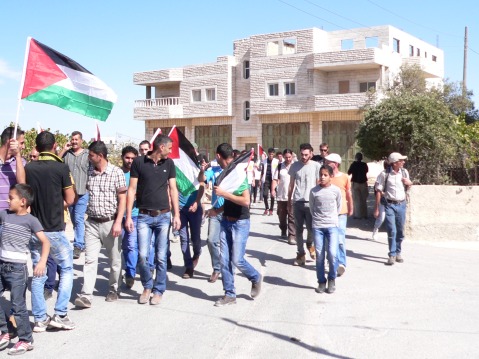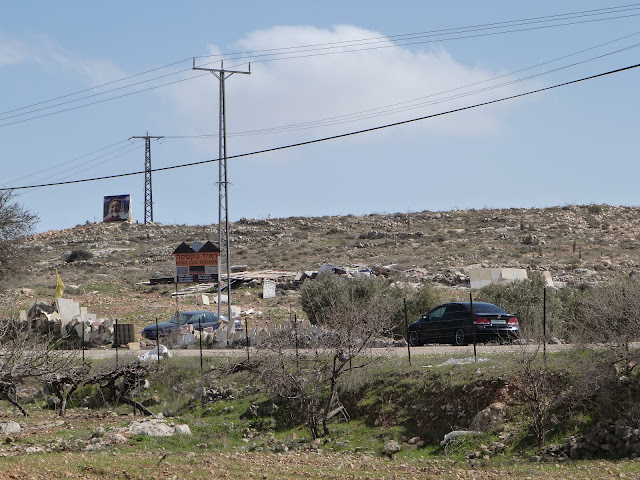Tag: Al Ma’asara
-

Seven years of popular resistance in Al-Masara: ‘We want freedom, not aid money’
26th October 2013 | International Solidarity Movement, Khalil Team | Al Masara, Occupied Palestine Yesterday, Friday 25th October, over a hundred non-violent protesters, half of them internationals from more than a dozen countries all over the world marked the seventh anniversary of the popular struggle of the people of Al Masara against illegal Israeli settlements, most notably…
-
Al Ma’asara demonstrates the meaning of peace
by Ramon Garcia 9 March 2012 | International Solidarity Movement, West Bank The people of Al Ma’sara gathered after praying time to march to their land, confiscated for the nearby illegal settlement. Approximately 70 internationals were present, most of them Christians coming back from a conference in Bethlehem titled, “Christ at the Checkpoints.” The crowd…
-

Al Ma’asara: House on the seam of looming Apartheid Wall becomes center for peaceful resistance
by Aaron 14 February 2012 | International Solidarity Movement, West Bank There is a place where a ground-level concrete line runs beside a country road through olive orchards, grape vines, blossoming almond trees, and homes—all Palestinian. This is the projected path of a new segment of Israeli Apartheid Wall through Al-Ma’sara, a small village 13…
